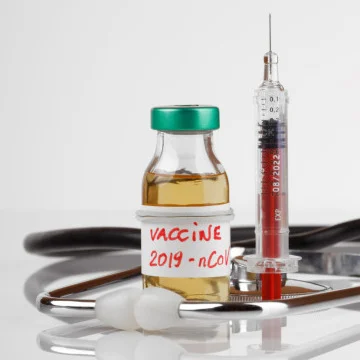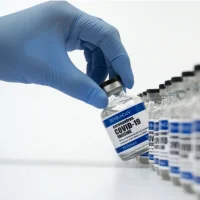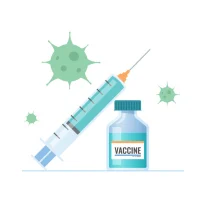This week has seen another COVID-19 vaccine-related incident: a volunteer in the AstraZeneca (AZ) vaccine trial in Brazil has died. Nevertheless, the trial continues as might the previously halted Johnson & Johnson’s (J&J) and the U.S. arm of AZ’s trial.
You might also like: Rushing COVID-19 Vaccine Development: Is It Justified?
Anvisa, Brazilian health authority, has said a volunteer in AZ’s coronavirus vaccine trial died, marking the first death in a COVID-19 vaccine trial. According to Brazil's O Globo newspaper, the man was in the trial's control group and was given a placebo and not the experimental vaccine, although there has been no official confirmation of this. Reuters notes that the trial would have been halted if the person who died had been given the vaccine. This opinion is also shared by Carlos Fortaleza, an epidemiologist at São Paulo State University, in his comment to the Wall Street Journal, and some other experts.
Joanna Bagniewska, Oxford Vaccine Group spokeswoman said in a statement: "Following careful assessment of this case in Brazil, there have been no concerns about safety of the clinical trial and the independent review in addition to the Brazilian regulator have recommended that the trial should continue." A spokesperson from AZ declined to comment, citing “medical confidentiality and clinical trial regulations”.
Reuters reports the Federal University of São Paulo, where AZ's Brazil trials are being held, as saying that "everything is proceeding as expected, without any record of serious vaccine-related complications involving any of the participating volunteers".
The AZ’s vaccine candidate trial has seen about 10,000 people enrolling, with 8,000 of them given either the vaccine or a placebo up to now. Brazil currently has the second deadliest outbreak in the world, behind the U.S., with 156,000 deaths as of 23 October.
While Brazil has set aside over $350 million to purchase the AZ vaccine, the Peruvian government, for example, refused a purchase deal with the company “because it did not provide sufficient data from its studies and offered minimal amounts of inoculations,” WSJ reports.
While AZ isn't pausing this trial, doing so is a common practice in the scientific and pharma community. Just recently, AZ and J&J’s vaccine trials, which are supported by the U.S.’s Operation Warp Speed, have been paused due to an unexplained illness in study participants. The study by AZ and Oxford University, was halted on 8 September after a woman in the U.K. study developed neurological symptoms. It has since then been resumed (after about a week’s time) in the UK, but is still on hold in the US. On 11 October, the J&J’s trial was put on hold because of a suspected adverse reaction in a patient. According to Al Jazeera, however, Moncef Slaoui, the head of Operation Warp Speed, expects the U.S. trials of AZ and J&J vaccines to restart until the end of the month.
Sources: Al Jazeera, Reuters, Business Insider, CNBC, WSJ
Image credit: claraveritasvia iStock


![Tuberculosis Diagnostics: The Promise of [18F]FDT PET Imaging Tuberculosis Diagnostics: The Promise of [18F]FDT PET Imaging](https://res.cloudinary.com/healthmanagement-org/image/upload/c_thumb,f_auto,fl_lossy,h_184,q_90,w_500/v1721132076/cw/00127782_cw_image_wi_88cc5f34b1423cec414436d2748b40ce.webp)







